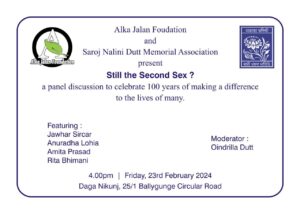“ We can STOP it NOW ”
Female Genital Mutilation (FGM) comprises all procedures that involve partial or total removal of the external female genitalia, or other injury to the female genital organs for non-medical reasons.
Female genital mutilation/cutting (FGM/C) is one of the most prevalent harmful cultural practices against women and girls in many African countries.
Female genital mutilation is a violation of the human rights, health, integrity and personal development of girls and women, stripping them off their childhood and excluding them from education.
FGM is often considered a necessary part of raising a girl, and a way to prepare her for adulthood and marriage. This can include controlling her sexuality to promote premarital virginity and marital fidelity.
What are the signs and symptoms of FGM?
- Having difficulty walking, standing or sitting.
- Spending longer in the bathroom or toilet.
- Appearing quiet, anxious or depressed.
- Acting differently after an absence from school or college.
- Reluctance to go to the doctors or have routine medical examinations.
In my country, Cameroon, like in many other places, the purpose of female genital cutting is to ensure that a girl behaves properly, saves her virginity until she gets married and then stays faithful to her husband.
We identified reasons for the failure of the legal approach to stop FGC practice in Cameroon through multi-locale ethnographic field-work. Cultural and social factors for performing FGM
Why is it important to stop FGM?
FGM is a violation of girls’ and women’s rights
Briqueterie and Tsinga neighborhoods in Cameroon’s capital, Yaoundé, are the places where female genital mutilation, or FGM, is resurging because there is a high concentration of people from Kousseri on Cameroon’s northern border with Chad and Nigeria that believe in FGM as a way to keep women faithful to their husbands.
Our organization with many others civil society networks keep educating the communities that it is illegal and unhealthy to cut a girl’s clitoris.
The practice is actually current not only in the Far North region on Cameroon’s border with Nigeria, but also the English-speaking Southwest region where campaigns to stop FGM is always going on because we still have girls victims.
Government in Cameroon is also doing a great job to end the practice by providing funds to start other businesses to women that were practicing FGM on girls as their income generating activities. FGM is a crime, nobody should remain silent.
By Anne Pélagie YOTCHOU TZUDJOM
Coordinator of CEFAP-LADIES CIRLCE, IAW Water & Pads Project
IAW Board Member



